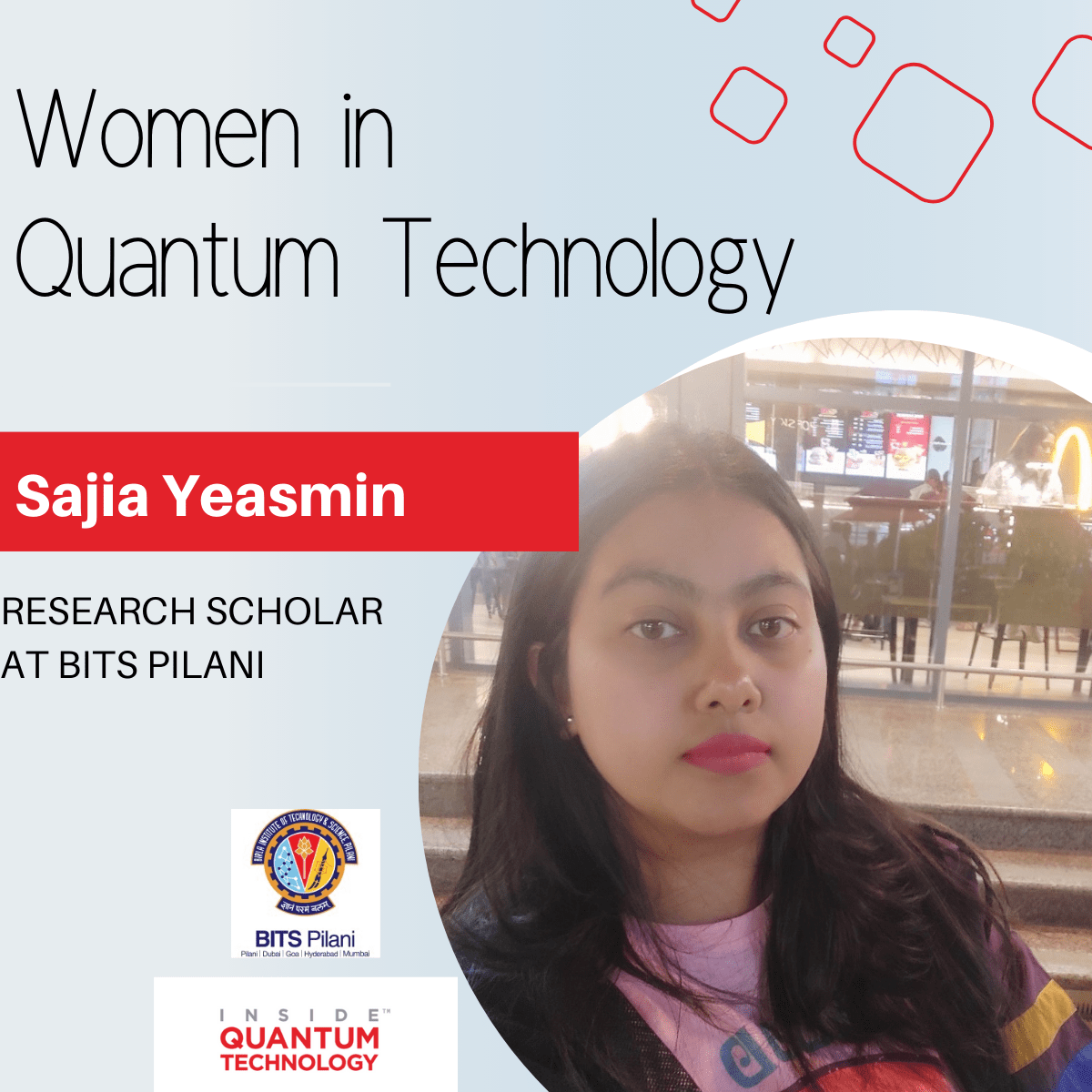Women of Quantum Technology: Sajia Yeasmin of BITS Pilani

India is becoming a growing quantum technology hub, and graduate students like Sajia Yeasmin of Birla Institute of Science and Technology (BITS) Pilani on the Hyderabad Campus in Telangana, India, are experiencing this growth firsthand. Learning quantum computing or researching quantum technology gives students like Yeasmin better chances of finding a stable, well-paying position during significant job shortages in the country.
For Yeasmin, her passion for this science goes deeper than having a successful career, as she hopes to solve several critical issues the industry is tackling. “The necessity of quantum computing is growing rapidly,” she told Inside Quantum Technology. “As this powerful system has begun to scale up and open up a universe of possibilities, there is still a lot of noise in this area. The motivation to fill up the gaps in this area has gained my interest in this industry. However, the industry is tackling more than just a few fascinating technical difficulties if it hopes to realize the promise of quantum computing fully.”
Because India funds many quantum research initiatives, Yeasmin has found various chances to learn about this technology and join the growing ecosystem. “There have been many opportunities to get involved in the vibrant quantum computing and information fields,” she added. “Through conferences and community lectures, I became involved in this field. Several of them are worldwide, which allowed me to become actively involved. As our team and technologies advance, we learn from one another.” Through her connections, Yeasmin learned about the program at BITS Pilani and decided to enroll as a graduate student.
Now, at BITS Pilani, Yeasmin is looking into some of the leading technologies for quantum computing. “Currently, I’m working as a research scholar in cavity quantum electrodynamics and cavity optomechanics,” Yeasmin elaborated. “I work on theoretical investigations, from building cavity optomechanical setups to analyzing their outcomes and significance for applications in quantum computing.” As many quantum computers use similar setups to what Yeasmin studies, her research gives her hands-on experience that she can translate into an industry position later in her career.
As a female graduate student in the heavily male-dominated field of quantum computing, Yeasmin highlights the importance of encouraging more diversity in this ecosystem by “expanding diversity within the quantum community by accepting and promoting variances in gender, age, origin, nationality, and religion among other categories,” she added. “Scientific inclusion is proactively supporting, valuing, and respecting each other’s opinion for a better perspective.”
Kenna Hughes-Castleberry is the Managing Editor at Inside Quantum Technology and the Science Communicator at JILA (a partnership between the University of Colorado Boulder and NIST). Her writing beats include deep tech, quantum computing, and AI. Her work has been featured in Scientific American, Discover Magazine, New Scientist, Ars Technica, and more.



















